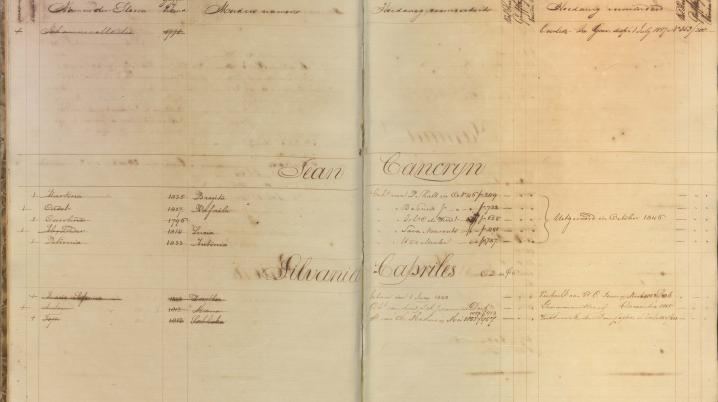
Curaçao slave registers now available online
On 17 August, the Curaçao slave register (1839-1863) and emancipation registers (1863) were published online via the websites of both the National Archives of Curaçao and the National Archives of the Netherlands. This date was chosen because it coincides with Tula Day, the day when Curaçao remembers its slavery history and commemorates the rebellion of Tula, 225 years ago this year.
Curaçao slave register and emancipation registers
The database published online consists of the slave register and two emancipation registers. The slave register of Curaçao lists any enslaved person who was (considered) property of a private slave owner in Curaçao in the period between 1839 and the abolition of slavery in 1863. For each person, the register lists the first name, year of birth, mother’s name, and name of the slave owner. In addition, the register also lists information about births, deaths, and the sale, import and export of slaves, since Curaçao remained a centre of small-scale international slave trade well into the 19th century.
The emancipation registers list the enslaved people who were granted freedom on 1 July 1863. The emancipation registers form an important complement to the slave register because they list the last names that people were given in 1863. “People of Curaçao descent can now more easily investigate their family’s past”, says Johan van Langen of the National Archives of the Netherlands. “By making archives about the shared history of Curaçao and the Netherlands available online, we also hope to facilitate academic research, for example on the long-term impact of slavery and colonialism, a topic that is increasingly gaining attention in the social debate.”
UNESCO Memory of the World
This project is the result of a successful cooperation between Radboud University, the National Archives of Curacao and the University of Curaçao, with the support of the National Archives of the Netherlands. The slave registers form part of the UNESCO Memory of the World Register – Latin America and the Caribbean.

